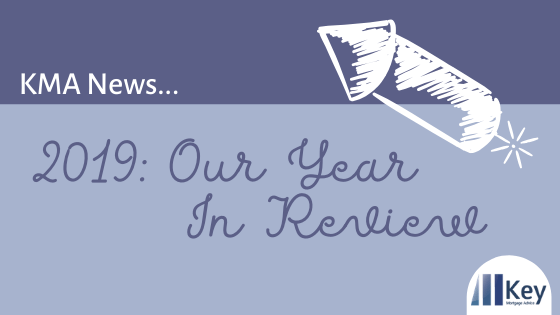As the nights draw in and temperatures drop, it’s worth checking if you’re eligible for one of the many available grants. The government have put aside millions of pounds to assist with energy bills or improving your home’s energy efficiency, so don’t miss out!
What is a grant?
A grant is money (or sometimes a voucher) given to you to cover a specific cost. In this case, we’re looking at grants which are intended to assist with the cost of keeping your home nice and warm over winter.
Some grants are offered by a specific energy supplier and used as an incentive to get you to switch provider. This means that, even after the grant, you’re not necessarily getting the cheapest deal. Be sure to shop around to make sure you couldn’t find a more suitable deal elsewhere.
A good place to start in your quest for energy grants is the Energy Saving Trust website and Simple Energy Advice. They can point you towards any government-backed grants or those being offered by your local authority.
These grants can lead to an increase in your home’s value as well as its warmth and efficiency.
Free boilers and insulation
Many of the biggest energy suppliers are offering free boilers and/or insulation to people receiving certain benefits. This is part of the Energy Companies Obligation (ECO) scheme. A new boiler costs just over £2000 on average, so this is a fantastic offer if yours is past its best. It could also save you up to £350 a year on your gas bill thanks to increased efficiency.
Getting cavity wall insulation can knock up to a whopping £250 off your energy bills each year, according to research by the Energy Saving Trust. Loft insulation can save you a further £220 per year, so these deals are worth grabbing if you have the chance. Just be sure that cavity wall insulation is appropriate for your home, as in some cases it can cause damp.
These offers tend to be reserved for those on tax credits or income-based benefits like income support and pension credit.
The energy companies involved in the scheme are:
• British Gas
• Co-operative Energy
• Economy Energy
• EDF Energy
• Eon
• Extra Energy
• First Utility
• Npower
• Ovo
• Scottish Power
• SSE
• Utilita
• Utility Warehouse
If you’re with one of these suppliers already, they should contact you if you’re eligible. However, if you think you fit the requirements or are thinking of switching supplier to get the ECO grant, it’s worth contacting them.
Get £140 towards winter energy bills

The Warm Home Discount scheme requires big suppliers to help those in the UK most in need to pay their energy bills during the colder months. If eligible, you could get a £140 discount on the energy you use between October and March.
Those on pension credit and those on a credit meter should automatically get this reduction on their bill. If you have a prepay or pay-as-you-go meter, you’ll need to apply. Low-income households also qualify for the discount.
If you qualify for the rebate, you should receive a letter before December 7th 2018 telling you that you’re eligible for an automatic discount, or that you need to apply for it. If you need to apply, the cut-off date varies by supplier, so give them a call as soon as possible. The payment needs to be made before March 31st 2019, so make sure you apply in good time.
Can you get the winter fuel payment?
If you were born before November 6th 1953, you’re entitled to a tax-free winter fuel payment of between £100 and £300 to help with your energy bills. The money comes from the government, and should arrive in your account before Christmas! The exact amount you’ll get depends on your personal circumstances.
If you receive a state pension or get another form of social security benefit (e.g. pension credit, jobseeker’s allowance or ESA) you should get the payment automatically.
If you’ve never had the payment before and aren’t receiving a state pension or social security benefits, you’ll need to apply.
Cold weather payment if temperatures go below zero

The cold weather payment is another government grant for older people and those on certain benefits. If the average temperature is forecast to be 0°C or below for a week or more between November 1st 2018 and March 31st 2019, then you’ll receive £25. You’ll get £25 for every period of seven consecutive days of cold weather, paid into the same account your benefits go into. You should get the payment within 14 days of the cold spell.
All UK residents in receipt of pension credit qualify for the payment. As do those on income support, jobseeker’s allowance, ESA or universal credit who also receive a disability or pensioner premium and/or have a young child (under 5) or child with a disability living with them.
The payment should be automatic but check with your Jobcentre or pension centre if you don’t receive it within 14 working days.
Help to pay for utility arrears
Many utility companies have an energy fund scheme to help with arrears if you’re struggling financially. They can help if you have large arrears on your gas, electricity or water bills.
In order to apply, you’ll need to complete a full income and expenditure budget sheet and provide proof of your income. You’ll also be required to provide details on how you got into arrears, e.g. due to illness or redundancy, and explain how the grant will help you.
The eligibility criteria vary from provider to provider, so you’ll need to contact the company you’re in arrears with to find out if you’re eligible for a grant. Some require you to be in receipt of certain benefits, but this isn’t always the case.
The process can take several weeks, however, it’s worth it if you’re facing financial hardship.
Your mortgage is likely your biggest financial commitment. So, if you’re looking for other ways to save money, come and speak to one of our advisors about finding a better deal. You can find our details on the Contact Us page.

